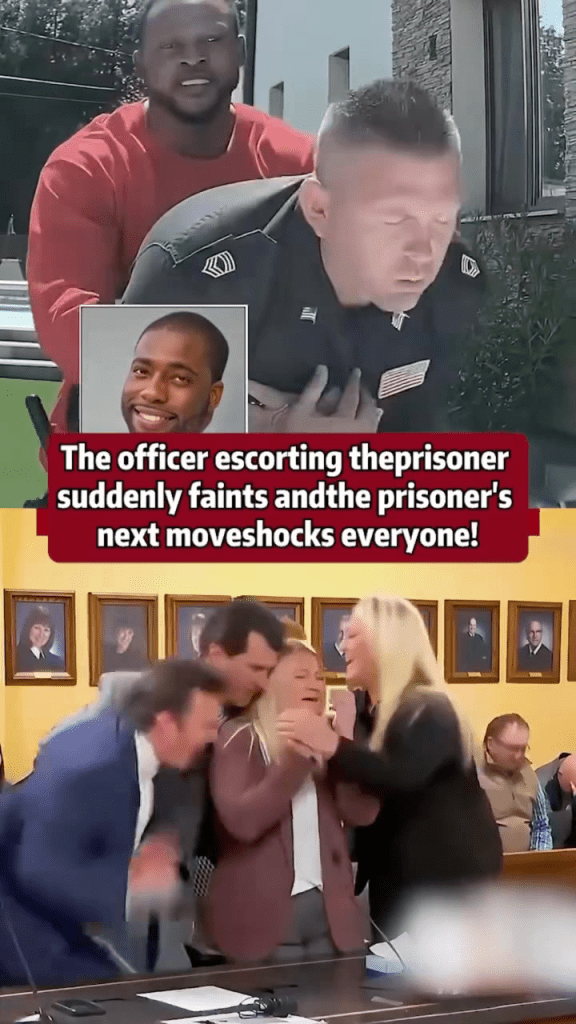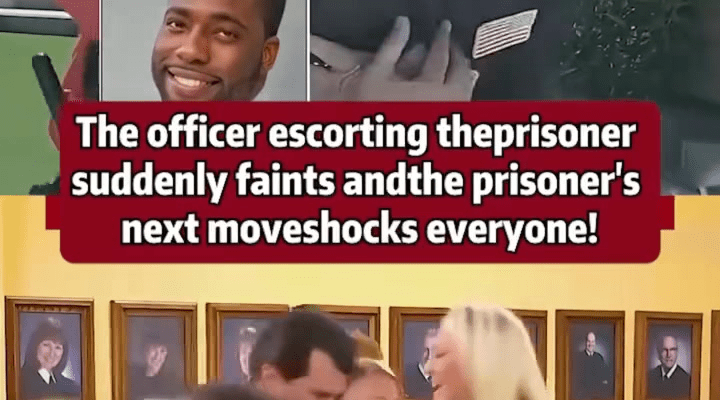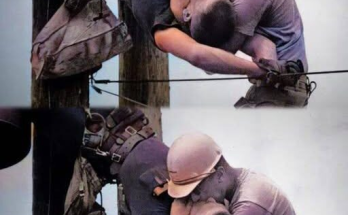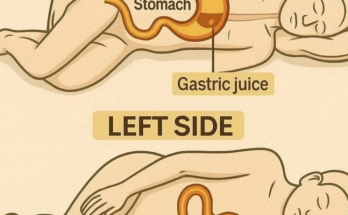Keywords: Officer collapse, prisoner saves life, correctional officer emergency, humanity behind
bars, sentence reduction for heroism, Jack Morrison, Thomas prisoner story, courtroom
consequences, dangerous fugitive act of kindness
The Engaging Hook: An Unforeseen Crisis
The officer escorting the “dangerous fugitive” suddenly collapsed, a victim of a medical crisis. The whole world expected the worst.
Story in comment
The Anatomy of an Unexpected Crisis
The day began like any other for Officer Jack Morrison, a veteran of the correctional service with over two decades spent managing high-risk transports. His current assignment was
escorting Thomas, a man whose reputation preceded him. Thomas was not merely incarcerated; he was a known flight risk, having repeatedly demonstrated an uncanny ability to exploit
security weaknesses. For this reason, Morrison was alone with him-a calculated risk meant to minimize exposure during the transfer, placing maximum faith in Morrison’s skill and vigilance.
The transfer route took them across a sparsely populated stretch of open land, far from immediate assistance. In the moments leading up to the crisis, the tension was palpable, a silent
standoff between the law and a man determined to defy it.
Then, everything changed.
Without warning, Officer Morrison began to choke. A piece of chewing gum, a seemingly innocuous detail, had become a life-threatening obstruction, a complete blockage of his airway.
He frantically clutched his throat, his professional composure dissolving into sheer panic. His attempts to dislodge the object were futile. Within seconds, his eyes rolled back, his face began
to drain of color, and he collapsed face-first onto the dry ground.
Morrison was completely incapacitated. His sidearm was holstered but accessible, his keys were within reach, and the radio he could have used to call for backup was now useless. The
man tasked with upholding his confinement was now utterly vulnerable, placing his life, and the sanctity of the entire security operation, in the hands of the individual he was guarding.
Thomas’s Choice: Humanity Trumps Freedom
The moment Officer Morrison fell, time must have seemed to stop for Thomas. This was the ultimate gift-the unguarded moment that criminals dream of. The opportunity for a clean escape
was laid out before him, requiring nothing more than a few swift, decisive movements. He was far from any significant landmark, and his escort was now incapable of giving chase or
sounding the alarm.
His background and record should have dictated his next move: flight.
But Thomas made a different, profound choice. He didn’t hesitate, and he didn’t flee. He immediately scanned the area-not for an escape route, but to confirm their isolation, realizing that
he was the only one who could help. His focus zeroed in on the gasping, unconscious officer.
The transition was instant: fugitive to first responder.
Thomas quickly rushed to the officer’s side. He knew he had minutes, possibly less, before the lack of oxygen caused irreversible damage. Despite his restraints, he managed to maneuver
the officer, carefully rolling the heavier man onto his back. He then began the desperate, physically taxing process of attempting to clear the airway. For what must have felt like an eternity-
about ten agonizing minutes-Thomas physically wrestled with the officer’s body, instinctively applying pressure and positioning him to maximize the chance of success.
Finally, with a loud, convulsive cough, Officer Morrison’s body spasmed, and the piece of gum was expelled. He took a huge, rattling breath, regaining consciousness, albeit stunned and
weak. He was safe, solely due to the quick, selfless actions of the man he was escorting.
The Unspoken Handover: Returning to Custody
The most poignant moment of the entire ordeal came in the silence that followed the officer’s recovery.
Officer Morrison lay on the ground, struggling to gather his wits. Thomas, the dangerous fugitive, looked at the keys and the weapon that were now his for the taking, and then down at the
officer. He had proven his point: he was a man capable of escaping, yet he had chosen not to.
Instead of making a run for it, Thomas simply bent down, picked up the set of handcuffs that had fallen nearby, and motioned for the recovering officer to secure him. It was a powerful,
symbolic act of surrender and integrity. The crisis was over, the life was saved, and the prisoner voluntarily returned to his state of captivity.
This single act elevated Thomas from a simple inmate to a subject of moral debate.
The Legal and Ethical Conundrum: Should Heroism Grant Leniency?
News of the incident traveled quickly up the chain of command, sparking a massive public and legal discussion. When a man labeled by the justice system as a societal threat performs an
act of extraordinary, selfless courage, what is the appropriate response?
Legal analysts point out that Thomas’s actions do not legally erase the crimes for which he was originally convicted. The principle of retributive justice-that punishment must fit the crime-
remains a cornerstone of the legal system. His past record, which included numerous infractions and attempts to kll security measures, remains a factual part of his judicial history.
However, the act introduces a powerful element of rehabilitative justice and mitigation. Thomas consciously chose a human life over his own freedom.
Precedent and Mitigating Factors
While this specific case is highly unusual, it is not without precedent. Across the world, there are instances where heroic acts by inmates-such as saving a guard from a brutal assault,
intervening during a prison riot, or providing life-saving medical aid-have led to judicial commendation.
. Parole and Clemency: The most common legal outcome is the recommendation for clemency or accelerated parole eligibility. A heroic act serves as compelling, undeniable
evidence of rehabilitation and moral reform that traditional therapy and programs might take years to achieve.
. Mitigation in Sentencing: Even if the courts refuse to commute the sentence entirely, the act can be recorded as a significant mitigating factor. This impacts future parole board
hearings, reduces security classifications, and may lead to a more favorable classification within the correctional facility.
. The Message to Society: To deny any form of leniency would send a chilling message: that the system values punishment above all else, even selfless courage. Rewarding Thomas’s
actions-even marginally-affirms the value of humanity behind bars and incentivizes positive behavior within the prison population.
As one legal expert noted, “Justice is not blind to virtue. It is about understanding the whole person. The Thomas who committed the original crimes and the Thomas who saved Officer
Morrison are the same man, but his capacity for good has been definitively proven.”
The Human Impact: Beyond the Bars
Officer Morrison, now recovered and back on duty, has been the most vocal advocate for leniency. His life was spared by the very man he was paid to contain. This personal debt transcends
the professional boundary and highlights the complex human relationships that exist within the correctional environment.
The story of Thomas is a rare but vital reminder that prison walls contain complex human beings, not just labels. It forces a fundamental re-evaluation of justice: Is the goal solely to punish
and isolate, or is it to reform and redeem?
Thomas’s choice-freedom in his grasp, yet opting for compassion and duty-serves as a powerful commentary on the enduring presence of morality, even in the darkest corners of the
justice system. The ultimate court decision will not only determine Thomas’s future, but will also set a benchmark for how the world acknowledges the profound power of human decency in
the face of despair.




